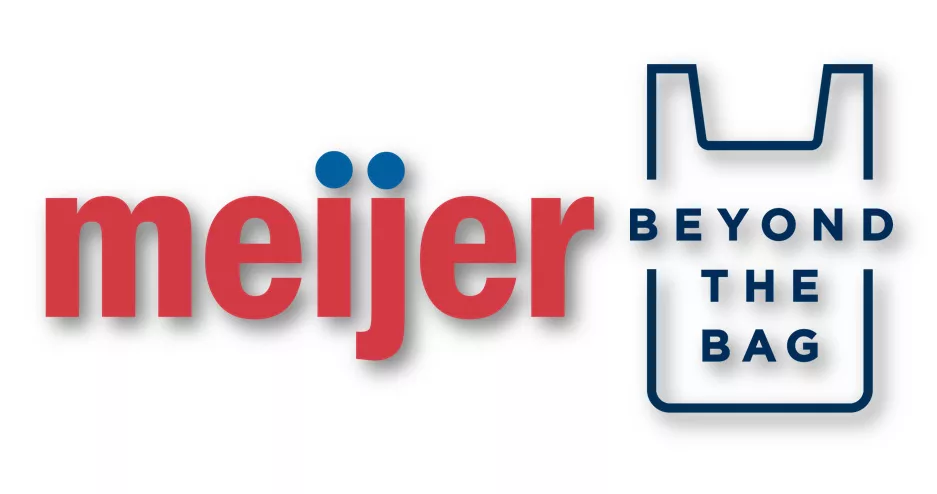As Meijer continues an ongoing drive to reduce waste and improve recycling, the retailer has announced they have joined the Beyond the Bag Initiative aimed at identifying, testing and implementing sustainable solutions to move beyond the single-use plastic bag.
Vik Srinivasan, Senior Vice President of Properties and Real Estate for Meijer, says, “Meijer operates under the philosophy that to be a good company, we must be a good neighbor.” He adds, “We are committed to lessening our impact on the environment and believe our participation in this initiative is an important step in keeping our communities clean for generations to come.”
Meijer is among numerous other retailers industry-wide who are partnering in the Beyond the Bag Initiative which was launched earlier this year by Closed Loop Partners’ Center for the Circular Economy. The 3-year collaboration is working to find a replacement for the single-use plastic bag that’s functional, easy for customers to use and better for the environment. The initiative also engages with stakeholders, including suppliers, materials recovery facilities, municipalities, advocacy groups and others to support this collaborative approach designed to promote viable market solutions that can be scaled, and bring value to retailers and customers.
Kate Daly, Managing Director of the Center for the Circular Economy at Closed Loop Partners, tells us, “The scale of the challenge is vast, with single-use plastic bags used widely across industries, sectors and geographies,” and adds, “Addressing a systemic waste challenge requires bringing stakeholders together to solve for a shared challenge. That’s why we’re thrilled to have Meijer join the Consortium to Reinvent the Retail Bag, alongside CVS Health, Target, Walmart, DICK’S Sporting Goods, Kroger, Hy-Vee and Walgreens. Together, we are thinking outside the box and collectively reinventing the retail bag, and we encourage other retailers to join us.”
Meijer has made significant strides in recent years regarding its commitment to sustainable practices and the reduction of plastic waste in the environment, according to Erik Petrovskis, Director of Environmental Compliance and Sustainability for Meijer. For example:
- In January 2020, Meijer opened its first small format store, Woodward Corner Market, without single-use plastic bags. However, due to the coronavirus pandemic, the use of reusable bags has been restricted with the exceptions of customers using the company’s Shop & Scan technology and at self-checkouts.
- Since 2014, each Meijer store has placed collection bins inside its front entrance vestibules for customers to deposit clean, dry plastic bags and films, including single-use, bread, dry cleaning, produce and water softener bags. This year, Meijer expects to recycle 6 million pounds of plastic bags that are sent to its distribution centers for re-manufacturing into decking.
- In 2019, Meijer began adding a How2Recycle label on its own brand packaging to better help customers understand how to dispose of the materials. By 2022, the How2Recycle label will be on all True Goodness by Meijer packaging.
- In 2019, Meijer set a goal that Meijer brand packaging will be made from 100-percent reusable, recyclable or compostable materials by 2025.
Petrovskis says, “Lessening our impact on the environment through increased recycling efforts is an issue that is important to us and our customers, and one that we are working diligently to address.” He concludes, “I look forward to reviewing the innovative solutions that will stem from this collaboration.”
Meijer is a Grand Rapids-based retailer that operates 256 supercenters and grocery stores throughout Michigan, Ohio, Indiana, Illinois, Kentucky and Wisconsin, including locally in Benton Harbor, Stevensville and South Haven. A privately-owned and family-operated company since 1934, Meijer pioneered the “one-stop shopping” concept and has evolved through the years to include expanded fresh produce and meat departments, as well as pharmacies, comprehensive apparel departments, pet departments, garden centers, toys and electronics.
The Beyond the Bag Initiative aims to identify, pilot and implement viable design solutions and models that more sustainably serve the purpose of the current retail bag.






